If the Indian Home Minister is to be believed, then a solution to the Kashmir problem is at hand. Home Minister P Chidambaram told a Parliamentary Consultative Committee1 in early December 2010 that the “contours of a political solution” to the Kashmir problem should emerge over the next few months. His confidence rested on the preliminary reports submitted by a three member Kashmir interlocutor team, which has been going around Jammu & Kashmir eliciting opinions from all sections of society, including politicians, students and intellectuals. The Home Minister’s optimism notwithstanding, the question is whether we really are at the threshold of a breakthrough on Kashmir?
The three member team of interlocutors for Kashmir was set up by the Home Ministry in October 2010 as part of an eight point programme to restore normalcy to the restive state of Jammu & Kashmir. Announcing the names of the three interlocutors - well-known journalist Dileep Padgaonkar, Jamia Milia Islamia academic Radha Kumar and Information Commissioner M.M Ansari - Home Minister Chidambaram on 13 October 2010 said their objective was to “begin a process of sustained uninterrupted dialogue with all sections of people of Jammu and Kashmir, especially with youths and students and all shades of political opinion.” He expressed the hope that this process would eventually lead to the establishment of a permanent solution to the Kashmir problem.2
The setting up of a team of interlocutors was part of a larger eight point programme announced by New Delhi on 25 September 2010. The 8-point programme was a response to the violent upsurge in the Kashmir Valley during the summer months when more than 100 agitating Kashmiri youngsters were killed in police action. Mass organised stone pelting in the towns of the Valley had brought life to a standstill and returned international attention to Kashmir.
The 8-point programme, cleared by the Prime Minister at a Cabinet Committee on Security meeting, also called for the setting up of two Special Task Forces, one each for Jammu and Ladakh regions, to examine developmental needs. The other steps included the grant of Rs 100 crores to the state government to improve infrastructure in schools and colleges, ensure their re-opening after the months of unrest and restore academic routine. The government also decided that it would review the areas placed under the disturbed areas act and introduce steps to scale down the presence of security forces, bunkers and check points in certain urban localities. The other decisions included one to pay a compensation of Rs 5 Lakhs to each of the families whose child had been killed during the agitation. The state government was also asked to immediately release all students and youth arrested for stone pelting.
However, it was the concept of interlocutors that really captured public attention. It was assumed this would be a major decision. But the choice of interlocutors came as a bit of a surprise. Although Chidambaram attested to the credibility of the three interlocutors, saying that they were public personalities with “a good track record”, the choice of interlocutors was greeted by widespread scepticism. In the Kashmir Valley, the appointments were greeted with silence by political parties and rejected out of hand by the separatist camp.
The Visits
If the interlocutors were perturbed by the reactions to their appointment, they did not show it. Starting 23 October 2010, the three member team began its first visit to the state. This visit also was the cause of considerable confusion regarding the mandate given to the interlocutors: were they political negotiators or were they only meant to listen to all shades of opinion and offer suggestions to the Home Minister? Some reports quoted the chief interlocutor, Dileep Padgaonkar, as saying that “we would try to find out a solution through political negotiations with every stake holder for political settlement.”3 In the same breath, he was quoted as saying that their aim was to listen to all kinds of people and opinion in Kashmir and not offer any preconceived ideas on what could constitute a political solution for the state. Matters were complicated by Padgaonkar’s statement that dialogue with Pakistan was a must to resolve the Kashmir issue. When pressed, Padgaonkar defended his statements by arguing that the Home Minister had made it clear that there were no “red lines” for his team. In other words, they could say and do as they pleased! A more astonishing mandate was difficult to imagine. Some of the interlocutors did not stop at that but continued to freely air their own unsolicited opinions. The first visit was interesting in that the team met political prisoners, journalists and civil society representatives. The four day visit ended without meetings with political leaders.
The second visit by the Interlocutors (9-14 November 2010) served principally to demonstrate the self-avowed importance of interlocutor Prof. Radha Kumar. The absence of the chief Interlocutor, Dileep Padgaonkar, offered Prof. Kumar an unfettered opportunity to air her views on the Kashmir problem and assure her sceptical audience that their report would determine the ultimate solution of the problem. "We had asked for an assurance from the Government on implementing the solution (emerging from the exercise of the interlocutors) and we have got it," Kumar told reporters in Anantnag town [12 November 2010]. During the course of her visit, she also ticked off the media for being critical about her. The two interlocutors were shunned in the Kashmir Valley by most political parties and separatist organisations but did get good feedback from prominent citizens of Leh and Kargil.
The separatists continued to stay away from the meetings. Earlier, separatist strongman Syed Ali Shah Geelani, had slammed the appointment of the Interlocutors as a “dirty trick” played by New Delhi to deceive US President Barack Obama. He continued to maintain there was no point in discussing anything with the Interlocutors unless the Indian Prime Minister first accepted his five points: “Accept Kashmir as disputed territory; demilitarise Kashmir; release political prisoners; prosecute all security forces personnel responsible for the killings of 112 persons during the summer of unrest; and revoke the Armed Forces Special Powers Act”. The moderate Hurriyat leader Mirwaiz Umar Farooq too stayed away from the panel. No politician of significance except Chief Minister Omar Abdullah interacted with the panel.
The third and perhaps final visit of the Interlocutors to Kashmir beginning 17 December 2010 spanned seven days. This visit was marked by a greater degree of self restraint on the part of the interlocutors, some of whose earlier remarks offered with an air of regal nonchalance had infuriated the political community in New Delhi. Particularly offensive was one remark that suggested the Indian Constitution was a minor hindrance in their pursuit of a political solution for Kashmir. The Constitution can be amended again if need be since it has been amended several times before, Prof. Kumar had declared. This statement in particular, uttered by a person of no political standing and with no legislative authority had utterly flabbergasted a large body of parliamentarians.
On the third visit, the chief Interlocutor Dileep Padgaonkar was compelled to clear several controversies that his team had got mired in. He disowned a media report claiming that they had criticised the Omar Abdullah government and advocated self-rule. He was forced to clarify that “it is not our job to pass judgement. Our mandate is to come up with suggestions that how we can go about political settlement of the problem acceptable to all three regions and communities residing in every region.” He also denied supporting the “Self Rule” proposal put forward by the Opposition Peoples Democratic Party (PDP) or criticising the state government.
Their third visit began in Jammu where they spent a day meeting police and civil officials as well as academics and students. From there the Interlocutors continued on a three days tour of the border districts of Poonch and Rajouri. The views they heard in Poonch were apparently very different from those articulated in the Valley. Here the main complaints were about discrimination in fund allocations and lack of economic development. They then returned to Jammu before going on to Srinagar for three days of meeting and returned a day before Christmas Eve. In Jammu, on 20 December they met several people including PDP Patron Mufti Mohammad Sayeed and his daughter and former chief minister, Mehbooba Mufti, who told them that they must start a dialogue with the separatists
History of Failure
The idea of interlocutors is neither new nor a sure-fire solution. The state has seen a succession of them over the past two decades, beginning with the goodwill visit of an all party delegation led by Rajiv Gandhi in March 1990 at the beginning of the militancy. The only prominent Kashmiri leader to initiate dialogue was the late Maulvi Umar Farooq, Chairman of the Awami Action Committee, who tried to bring together various political leaders at a conference in 1992. In 2000, former Hizbul Mujahideen commander Abdul Majid Dar, along with a few other militant commanders, tried to initiate a dialogue with New Delhi but the talks were sabotaged by the Pakistani military. Dar was later assassinated. Balraj Puri (People's Union for Civil Liberties) and Dr Karan Singh also participated in some initiatives to bring a settlement but soon bowed out.
While there were a number of political initiatives during the 1990s, the first major attempt at a political dialogue was initiated only in April 2001, when the central government appointed former Union Minister KC Pant as its interlocutor for peace talks with Kashmiris. This was a follow up to the initiative by former Prime Minister Atal Behari Vajpayee, who had led an all party delegation to the Valley in August 2000 to get an impression of ground realities in that state. Pant’s mission, however, was a non-starter because at time the Hurriyat Conference insisted that there could be no negotiations without the involvement of Pakistan. The only separatist leader, Pant could meet was Shabir Shah, whose party at that time was not a constituent of the Hurriyat. The only other political personage Pant met was former chief minister Mir Qasim. This time too, the real reason for Pant’s failure was Islamabad’s desire to be included in the talks and its refusal to allow New Delhi to work out any agreement directly with Kashmiri politicians. The December 2001 terrorist attack on the Indian Parliament precipitated a crisis in India-Pakistan relations and all talks were broken off. Pant’s mission was wound up in 2002 without achieving anything.
In 2002, the so called Kashmir Committee was formed under the leadership of Ram Jethmalani. This committee boasted of several eminent personalities including Dileep Padgaonkar, former law minister Shanti Bhushan, Supreme Court advocate Ashok Bhan, freelance journalist Jawid Laiq, retired Indian Foreign Service officer V K Grover, eminent lawyer Fali Nariman and journalist M J Akbar. The committee did manage to hold talks with the separatist leadership but nothing eventually came of it or its recommendations. Jethmalani later claimed that the Committee had come to an agreement with the Hurriyat but this has been forcefully rejected by Mirwaiz Umar Farooq.
In 2003, the BJP led government in New Delhi took two initiatives towards finding a solution. It first appointed former Home Secretary NN Vohra in February of that year as a sort of interlocutor on Kashmir. His brief was, however, vague and the government did not seem to have a clear roadmap. Vohra managed to get the moderates in the Hurriyat to meet and initiate a dialogue with the then Home Minister, LK Advani, who in the end could offer no concession and the stalemate continued. Subsequently in July, the government appointed senior BJP leader Arun Jaitley to engage with the Kashmir Government and various political parties in the Valley. Jaitley held some meetings but could not come up with any solution acceptable to any political party. After that a couple of other interlocutors – including former RAW chief AS Dulat andthe late journalist RK MIshra - tried their hand at starting as dialogue but were equally unsuccessful.
The first major initiative on Kashmir by the present government was the ‘Round Table Conference’ announced by the Prime Minister Manmohan Singh on 25 February 2006. All Kashmiri mainstream political parties welcomed the move but added that all shades of opinion should be included to make the roundtable a success. Mirwaiz Umar Farooq, leader of the moderate faction of the Hurriyat Conference, initially welcomed the conference and Shabir Shah too hinted that he might come. But as always it was the hard-liner Syed Ali Shah Geelani, who proved to be the spoke in the wheel.
Yet another Round Table was held in May 2006, this time in Srinagar, which was well attended by all standards. Mirwaiz Umar Farooq subsequently denounced the process and pointed out that it could only be successful if it was part of a broader dialogue with the Hurriyat as well as with people across the border, including the government of Pakistan. This was the time when General Musharraf in Pakistan was actively looking for a Kashmir settlement and was telling the moderate Hurriyat to continuously raise the necessity of involving Islamabad in the talks on Kashmir. Separatist leaders like Yasin Malik and Shabir Shah also chose to boycott the second roundtable talks.
The government hunkered on regardless of the opposition from the separatist camp and declared that the roundtable had provided invaluable feedback for policy initiatives. Prime Minister Manmohan “Singh announced the setting up of five working groups to take ahead the dialogue process in Kashmir and look for a 'consensual' solution. The panels' tasks will include: dealing with CBMs to improve the condition of those affected by militancy; strengthening relations across the LoC in terms of more people-to-people contact; economic development; ensuring good governance; strengthening Centre-State relations. The group looking into the Centre-state relations will deliberate on the special status of J&K and discuss self-rule in terms of regional federalism and greater autonomy for the state.”4 Ultimately, these processes too petered away, leaving little public memory of the highly vaunted events.
Mission Lost
In some senses, the interlocutors’ mission was doomed to failure. Firstly, as was early demonstrated, they had little credibility with the target group they were supposed to be engaging. Kashmiris felt belittled as they had expected political or civil society heavy weights as interlocutors. It was widely expected that the government would have chosen politicians with high standing to engage Kashmiri opinion. This did not happen and the choice of interlocutors left most people astonished; while Dileep Padgaonkar had some public persona given his journalistic background, the other two were complete non-entities and it remained a mystery how they had found their way into this important national level team. One school of thought felt the Home Minister had deliberately chosen a set of non-entities for the interlocution process as this could allow for the dilution of the findings and recommendations if those did not suit the government. Another view was that the choice of interlocutors might have been motivated by a desire to keep the dialogue process apolitical and hence unbiased.
However, the interlocution process was bound to be political as it involved the settlement of the Kashmir problem. There could not be a more political issue than this, especially for Kashmiris who were looking for a political solution to their problems. The audience for this exercise were Kashmiris and for this reason alone the credibility of the interlocutors mattered. But when their names were announced there was complete incredulity in the Valley. The Valley media was unimpressed, even contemptuous, of the selection, no matter how highly the Home Minister praised the interlocutors.
Thus the very first battle was lost before a single shot being fired. The other major problem was with the state of the Opposition and the timing of the dialogue process. The separatist camp at the time the interlocution process was set in motion was dominated by the most virulent and hard-line factional leader – Syed Ali Shah Geelani, chairman of the Hurriyat-G grouping. A shrewd politician, Geelani had proved to be survivor in the separatist politics of Kashmir Valley. Despite ups and downs, he had he had continued to ride the Kashmir upsurge since in the inception of the insurgency in 1989. Geelani’s fortunes had fluctuated wildly and he had often been cast aside for his extremist and pro-Pakistan views. He nevertheless retained an important political position in the Valley. Initially, this was because of his position in the Jamaat-e-Islami (JeI) which had links with the terrorist organisation, Hizbul Mujahideen. His fortunes had waned after the JeI eased him out and the Hurriyat itself underwent a split. His stars further declined when he fell out with former Pakistani dictator General Pervez Musharraf.
The change of guard at the Pakistan Army headquarters restored Geelani’s position to some extent. However, the Pakistan Army’s decision to raise the Lashkar-e-Taiba as the principal terrorist group in Kashmir and downgrade all other groups, including the once supreme Hizbul Mujahideen meant that Geelani’s old militant links no longer counted for a lot.
It was the unrest during the summer of 2010 in the Kashmir Valley that once again propelled Geelani to the political frontlines. As the protest gathered strength, Geelani jumped into the fray and made out that he was the controlling force behind the agitation, which till then had no avowed leadership. The agitation itself was being instigated by a small group of shadowy agitators funded by Islambad. These secret agitators and their proximate cadre never assumed a public face and Geelani dextrously moved in to fill that space.
Geelani’s self confidence was boosted by the excellent response he received from the young agitators in the Valley and by an injudicious decision of the Central Government to send negotiators to engage him. He was apparently assured that New Delhi would negotiate with him if he ended the agitation. Whether or not this is true, what is certain that two negotiators – one of them being Prof. Radha Kumar - sent by the Home Minister had indeed met him. Geelani could not of course deliver for the agitation was not of his making. Nor was he inclined to lose out on a great political opportunity.
After this meeting, a renewed Geelani emerged in Srinagar egging on the agitators on the streets, preparing and announcing agitation schedules and declaring that Indian rule in Kashmir was nearing its end. The most hard-line Valley politician, having marginalised all other separatist leaders, was now in control and clearly had the upper hand. Having made it to the crest of the agitation, he could not climb down. Geelani’s conditions for a dialogue themselves read like final demands. He scorned the interlocutors and refused to even meet them. The futility of negotiating with an adversary who has the upper hand was completely lost on New Delhi. It was last reported from Srinagar that the desperate interlocutors had unsuccessfully approached several people to open a channel to Geelani and other separatists. The dialogue was destined to remain incomplete.
The Home Ministry will no doubt unveil the broad contours of some kind of Kashmir solution in the weeks ahead but it will lack credibility and effectiveness precisely because there has been no inputs from the separatist camp, which will be compelled to denounce any such plan and resume agitation.
The problem, as one old Kashmir hand pointed out, “is that there is no solution to the Kashmir problem that can satisfy all stakeholders. If such a solution existed, it would have been implemented long ago – we would not have had to wait 63 years for it.”
End Notes
1 : Kashmir Solution In Sight: Chidambaram, 10 December 2010, The Indian Express.
2 : Padgaonkar among 3 interlocutors appointed for dialogue in J&K, 14 October 2010, Daily Excelsior
3 : Interlocutors For Finding Permanent Solution, 23 October 2010, The Daily Excelsior
4 : Kashmir Roundtable Conference: Another Opportunity Lost By Separatists by Md. Sadiq, 26 May 2006. http://www.jammu-kashmir.com
-------------------------------------
Published date : 8 January, 2011

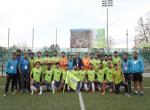
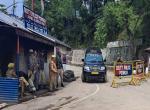
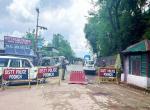
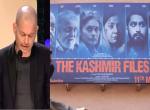
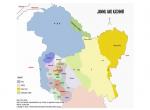

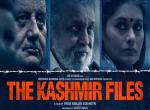
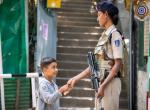
Post new comment